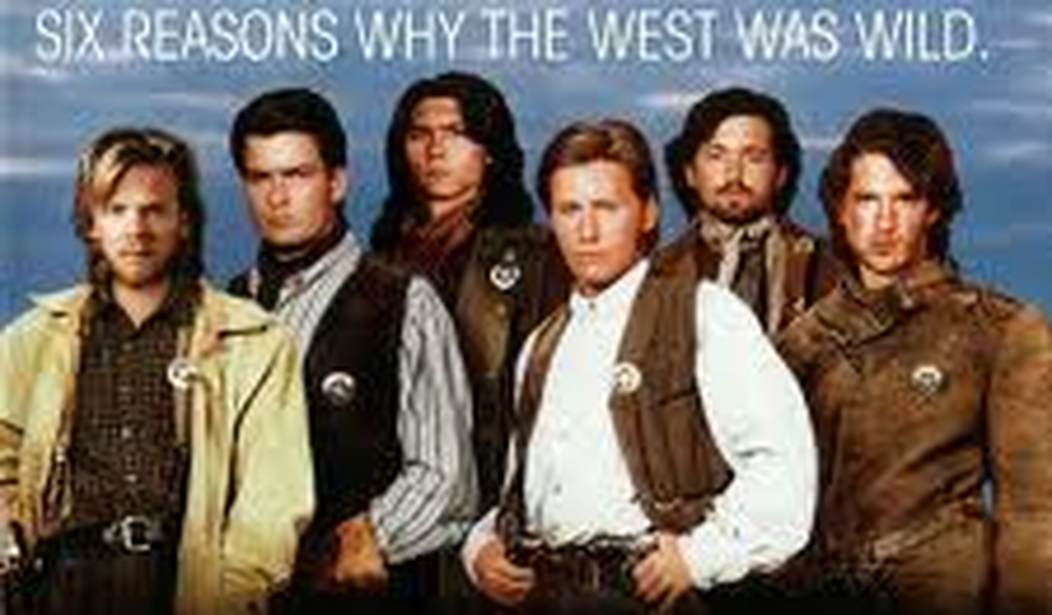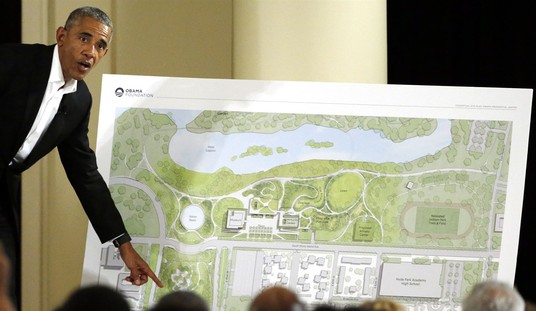The 113th Congress was sworn in today with the same aesthetic as most years — glossy congratulations and declarations of kindness and respect that easily give way with the first hard-core debate.
Gone was the palpable excitement of the right after the 2010 midterm Republican rout that transformed the 112th Congress and gave John Boehner the speaker’s gavel — which he retained today with fewer tears and fewer grand declarations as he fended off conservative discontent and rode the lack of serious challengers to victory.
Gone were some of the lawmakers who came to Congress on the 2010 wave of Tea Party angst and ObamaCare fury, like Reps. Ann Marie Buerkle (R-N.Y.) and Allen West (R-Fla.) — though West did win two votes from disgruntled incumbents for the speakership today. Back in the House was an especially abrasive Democrat ousted in that GOP year, Rep. Alan Grayson (D-Fla.).
And as the very course of the Republican Party itself, recovering from the defeat of Mitt Romney and congressional losses, is in question, so is the trajectory of the renaissance movement and philosophy crafted years ago by three of the top GOPs in the House.
Rep. Eric Cantor (R-Va.), now majority leader, Rep. Kevin McCarthy (R-Calif.), GOP whip, and House Budget Committee Chairman Paul Ryan (R-Wis.), fresh off an unsuccessful vice presidential campaign, preceded the 2010 elections with the book Young Guns: A New Generation of Conservative Leaders. Within its pages, the trio took aim not just at Democrats but at Republican leaders of congresses past who they believe betrayed the party’s principles and neglected to rein in spending or slow the growth of government.
“Under Republican leadership in the early 2000s, spending and government got out of control,” McCarthy wrote. “As government grew, there were scandals and political corruption. The focus became getting reelected rather than solving problems and addressing pressing issues.”
In 2010, 62 candidates out of 90 groomed under the Young Guns program were elected to the House. The batting average this November was less impressive: out of 42 candidates, just 12 won. High-profile GOP hopefuls such as Mia Love in Utah, Joe Coors in Colorado, and Vernon Parker in Arizona were among the unsuccessful Young Guns proteges.
But perhaps the greatest siren about the future of the Young Guns came late on New Year’s Day when the trio broke on a key tax-and-spend vote: Ryan voted (with Boehner) for the Senate’s fiscal cliff deal, while Cantor and McCarthy voted against it.
Ryan, architect of the Path to Prosperity budget plan favored by the right and reviled by the left, defended his vote by saying Republicans can now hold President Obama’s feet to the fire on spending cuts — since the commander in chief got his wish on taxing the rich.
Conservatives began declaring any Ryan presidential candidacy dead, even though the congressman’s attachment to the Romney ticket — and failure to win his home state — put that possibility pretty far in the ground already. Others chalked up his vote as a nasty by-product of the credentials that were praised during the campaign — that he’s a Beltway wonk who doesn’t fit with the Tea Party script of a hero riding in from somewhere beyond the mid-Atlantic to rescue the nation.
Cantor, though, waited to cast his “no” vote until passage of H.R. 8 was assured. Still, he was the go-to name for those interested in mutiny on the gavel.
As grass-roots fury was growing over Boehner’s mangled Plan B and willingness to go along with the agreement forged by Senate Minority Leader Mitch McConnell (R-Ky.) and Vice President Joe Biden, conservatives were placing hope in Cantor’s Tuesday declaration after heated caucus meetings that he did not support H.R. 8. One conservative lobbying group spread a rumor Wednesday that there would be enough dissension in the ranks to replace Boehner.
Not only did Cantor vote for Boehner today, but as if trying to dispel any idea that he’d orchestrated the freshman vote for his name moments before Cantor stood up and loudly declared his support for the speaker.
“It is an honor to serve with @SpeakerBoehner. I look forward to continue working with my friend to help all Americans,” Cantor quickly tweeted afterward — this despite between the well-known, longtime rift between the two leaders.
It may be that the strongest member to emerge from the dust — and, in conservatives’ eyes, remain true to the Young Guns philosophy that successfully worked with the grass-roots to forge some change in the past — will be McCarthy.
The 47-year-old California Republican, representing the area around Bakersfield, isn’t that well-known to Washington outsiders — who, as with Ryan and Cantor, could be quick to brand him an insider in the speaker’s favor who couldn’t possibly bring the GOP back to its small-government roots.
A small businessman before entering state politics, McCarthy spent the last Congress not just whipping members but flogging the Obama administration’s energy policy as anti-oil and natural gas. He launched the House Energy Action Team that waged a full-court press against Obama’s “all of the above” energy strategy as disregarding any sources below the ground, lent congressional support to fracking, helped keep Keystone on lawmakers’ lips, and lifted up as a model for the nation the economic renaissance in North Dakota thanks to the Bakken formation drilling.
Still, McCarthy would need to better introduce himself to grass-roots Republicans for them to have faith that he could be the leadership member best poised to steer the party back in its fiscally conservative direction. Save for the floor speech of Rep. Darrell Issa (R-Calif.), most Republicans who voted against the fiscal cliff deal — Cantor and McCarthy included — did so quietly without pomp or explanation of their stand.
When it comes to political posturing from the fiscal cliff vote, though, Sens. Marco Rubio (R-Fla.) and Rand Paul (R-Ky.) — two of just eight senators to vote against the fiscal cliff deal — may be not just trying to shape the course of the Republican Party but burnish their credentials for potential future runs at the White House.
Paul quickly registered his disapproval in the early morning hours of New Year’s Day. Rubio carefully positioned himself as one of the last senators to cast his vote.
“I won’t deny that I’m interested, a little bit different from I’m interested,” Paul has stated about his 2016 thoughts, all the while stressing that a “new type of Republican” is needed to face today’s challenges.
Rubio has gone the more traditional route, reaching out for the middle ground in an election night statement urging the Republican Party to reach out to Latinos and immigrants.
Paul railed against the lack of spending cuts in a floor speech before the vote. After the vote, Rubio took his argument directly to a press release.
“I appreciate all the hard work that went into avoiding the so-called ‘fiscal cliff’. I especially commend Senator McConnell’s efforts to make the best out of a bad situation. Nevertheless, I cannot support the arrangement they have arrived at,” Rubio said. “Rapid economic growth and spending reforms are the only way out of the real fiscal cliff our nation is facing. But rapid economic growth and job creation will be made more difficult under the deal reached here in Washington.”









Join the conversation as a VIP Member